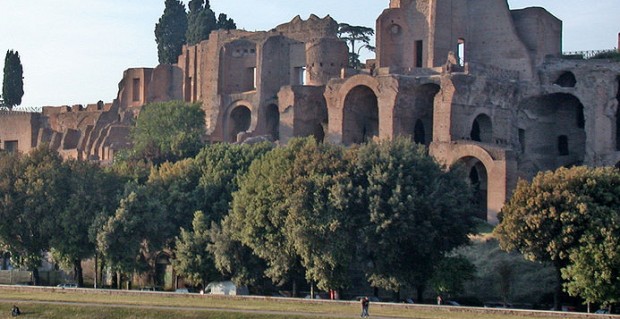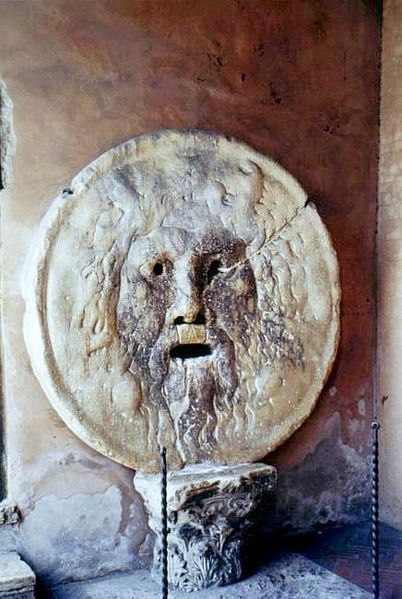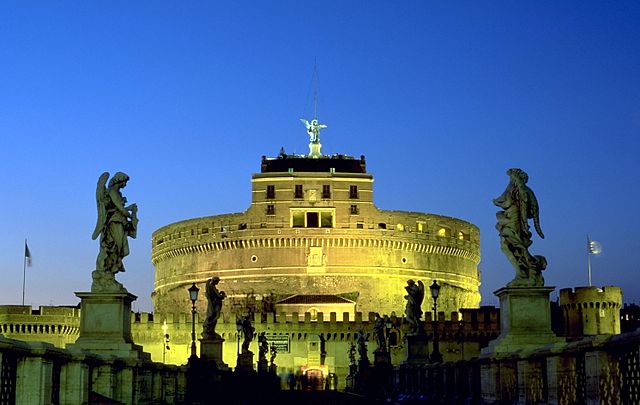Perpetual Rome

The digs of Octavian (Caesar Augustus) on Palatine Hill (if you look carefully, is that the cave of Romulus nearby? No?)
21 April, 753 BC – The traditional date for the founding of the Eternal City. That makes Rome 2769 years old, roughly. And on this same day in 43 BC, Marc Antony was spooked to a draw by Octavian at the Battle of Mutina, which eventually paved the way for the Roman Empire (not so eternal). Appian, in his The Civil Wars (Loeb edition) describes the game of chess the embryonic triumvirs played:
Octavian and Antony composed their differences on a small, depressed islet in the river Lavinius, near the city of Mutina. Each had five legions of soldiers whom they stationed opposite each other, after which each proceeded with 300 men to the bridges over the river. Lepidus by himself went before them, searched the island, and waved his military cloak as a signal to them to come. Then each left his three hundred in charge of friends on the bridges and advanced to the middle of the island in plain sight, and there the three sat together in council, Octavian in the centre because he was consul. They were in conference from morning till night for two days, and came to these decisions: that Octavian should resign the consulship and that Ventidius should take it for the remainder of the year; that a new magistracy for quieting the civil dissensions should be created by law, which Lepidus, Antony, and Octavian should hold for five years with consular power (for this name seemed preferable to that of dictator, perhaps because of Antony’s decree abolishing the dictatorship); that these three should at once designate the yearly magistrates of the city for the five years; that a distribution of the provinces should be made, giving to Antony the whole of Gaul except the part bordering the Pyrenees Mountains, which was called Old Gaul; this, together with Spain, was assigned to Lepidus; while Octavian was to have Africa, Sardinia, and Sicily, and the other islands in the vicinity thereof.
That fell apart, of course – it would be like a Donald Trump / Ted Cruz / Marco Rubio joint ticket – and the subsequent machinations led to the Battle of Actium (31 BC), where Octavian did down Marc Antony at last, and became Roman Emperor.
And the Roman Empire declined and fell, as we learned from Edward Gibbon, and so too the Holy Roman Empire, and Mussolini’s Grand Council of Fascism. But praise be to the Fates! Rome remains, in perpetuum, TVC‘s favourite city.

Leave a comment...
While your email address is required to post a comment, it will NOT be published.




0 Comments